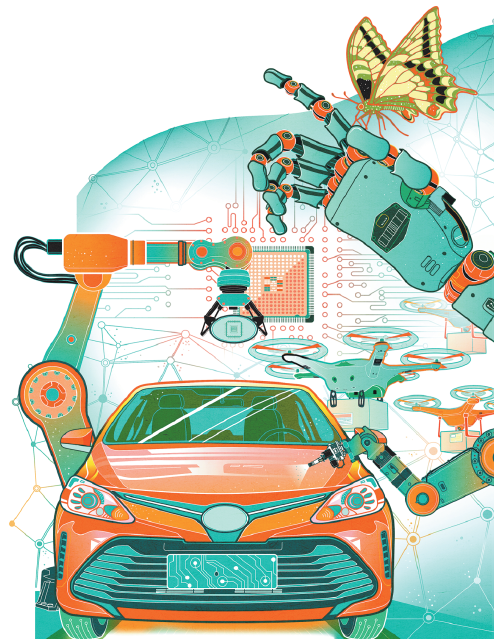Hurdles removed for manufacturers


State Council eases policies and says sector has crucial role to play in maintaining economy
The State Council has pledged greater support for the manufacturing sector by removing policy barriers hindering further opening-up and increasing preferential credit policies.
At its executive meeting on Jan 3, the Cabinet said the manufacturing sector has a fundamental role to play in maintaining major indicators of the economy, within a proper range.
It is important to take reforms and measures in line with market principles to spur the vitality of market players and harness the momentum of growth, it said.
Premier Li Keqiang said at the meeting that the role of private businesses and small and medium-sized enterprises must be emphasized in stabilizing the investment of the manufacturing sector, and all types of unreasonable access restrictions must be canceled.
"A key step to promote the growth of the manufacturing sector is further opening-up. We must see clearly that the sector can only become stronger through more competition in the international market," he said, adding that businesses must be encouraged to compete globally and seek cooperation opportunities.
To further promote opening-up, the State Council meeting decided on measures to refine policies on planning, use of land and maritime space, as well as energy consumption. It said the central and western regions and the northeast must intensify efforts to facilitate transfers of industries and attract foreign investment.
China has already opened up its manufacturing to foreign investors, with the removal of foreign ownership caps for sectors such as car manufacturing.
The country rolled out tax cuts and fee reductions that totaled over 2 trillion yuan ($290 billion) last year, with manufacturers the primary beneficiaries. Their value-added tax rate was cut from 16 to 13 percent.
However, the mounting downward pressure on the economy, coupled with weak domestic demand and trade frictions with the United States, has weighed down manufacturers.
Profits of industrial businesses fell by 2.1 percent in the January-November period, according to the National Bureau of Statistics, while industrial output growth also fell by 0.7 percentage points to 5.6 percent.
The purchasing managers' index for the manufacturing sector stood at 50.2 in December, marking the second consecutive month of expansion, the NBS said.
The Cabinet said more steps will be adopted to better improve the business environment, and to continue tax cuts and fee reductions focused on manufacturers.
The cost of electricity and telecommunications will be reduced, and industrial businesses will be greenlighted to take part in the power market.
To alleviate the difficulties and high costs of financing faced by SMEs, more mid-and long-term loans, equity investment and financing in the form of bonds will be made available to manufacturers.
The Cabinet also vowed to boost investment from private businesses and SMEs, saying that businesses will be incentivized to increase investment in technology upgrades and improve productivity.
To further tap into the potential of domestic consumption, it highlighted the need to refine policies for the growth of the auto sector, diversify industrial categories and give consumers greater choices.
Pan Helin, acting dean of the Digital Economy Institute at Zhongnan University of Economics and Law, Hunan province, said the cutting of electricity costs adopted at the Cabinet meeting, will ease the path for businesses as power generally made up about 2.8 percent of their total costs.
To ease the financial difficulties of SMEs, a key measure would be for banks to change their credit evaluation system. He said banks are still a primary financing channel for manufacturers, and it is important for them to adopt a preferential policy for manufacturers.
"For the government, it is important to support leading private businesses to keep expanding their volume of equity financing and to establish a more tiered capital market to boost the financing capacity of manufacturers," said the acting dean.
- New subsidies provided for HK fire victims' resettlement
- World's longest expressway tunnel to open to traffic in Xinjiang by year-end
- HKSAR govt releases first-ever Chinese medicine development blueprint
- Ten photos from across China: Dec 12 - 18
- Visa-free measures spur surge in visitors
- Avalanche in Xinjiang leaves one dead




































